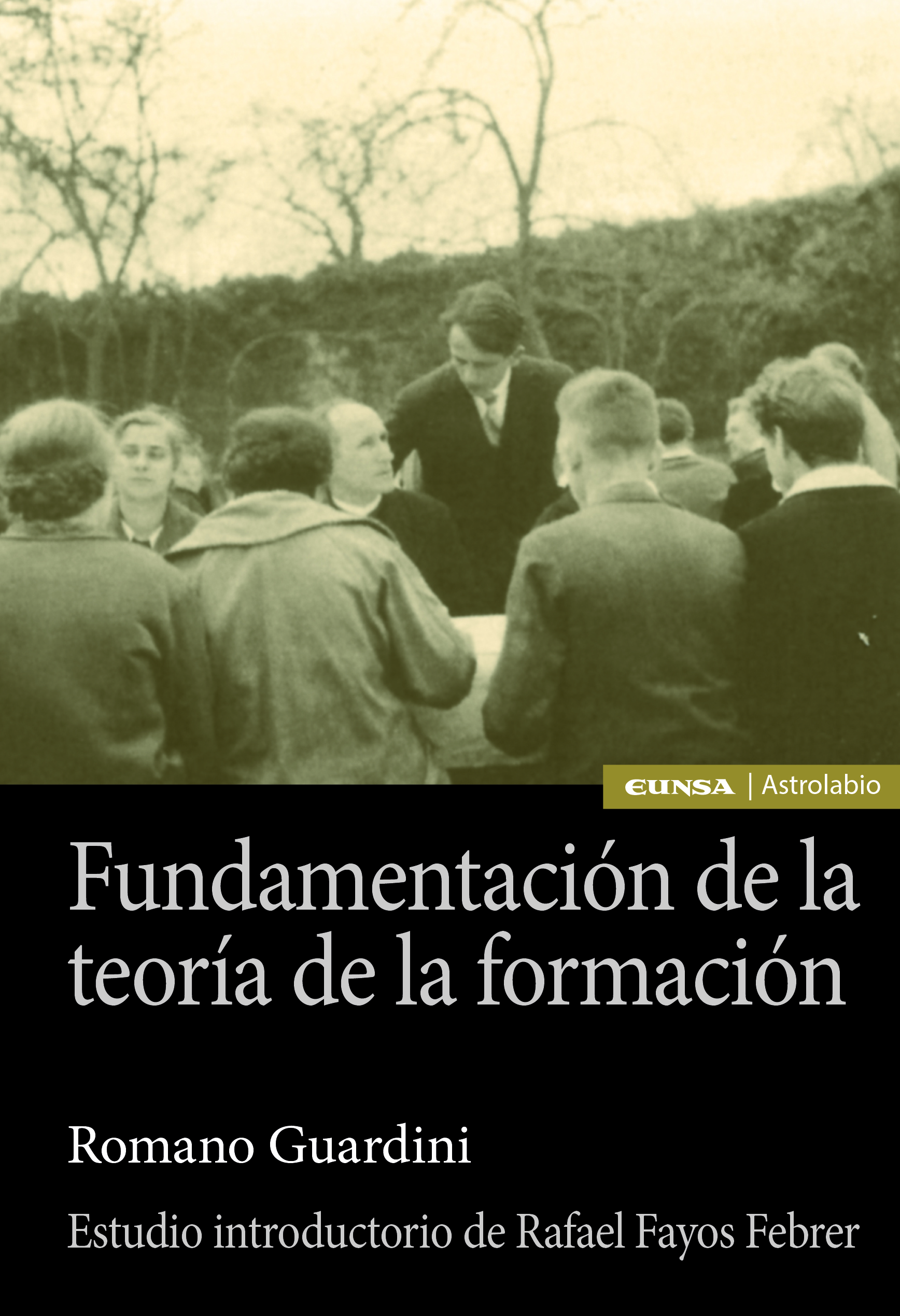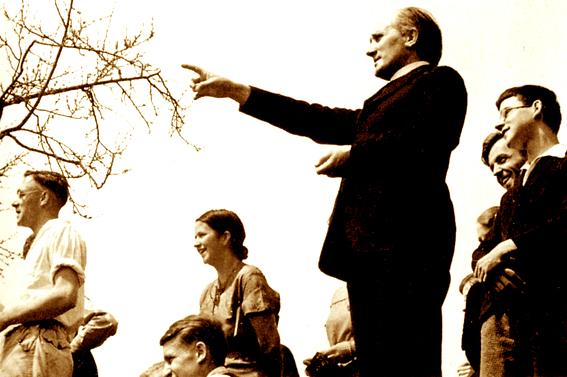Among the great Christian thinkers of the twentieth century, Romano Guardini (1885-1968) shines with his own light: the depth and originality of his thought is combined with a breadth of interests that make him a point of reference in many fields. They are well known, for example, The essence of Christianity, The Lord o The spirit of the liturgyThe writings of Guardini theologian that open new perspectives in the field of fundamental theology, Christology or liturgy.
Book file

However, it should not be forgotten that Romano Guardini was, above all, a priest and an educator: a university professor of renowned prestige, he devoted the best of his energies to the formation of a youth subjected to the ups and downs of the interwar period in Germany. The experience acquired in the years - decades - that he dedicated to the formation of young people, combined with the analytical capacity and depth of a systematic thinker supported by a deep and sincere faith, and enriched by a precise knowledge of the problems of modernity, took shape in different writings that deal with the same theme: the integral formation of man and, in particular, the formation of youth.
Some of these texts had already been published in Spanish: for example, las Letters on self-education, Three writings on the university o The Stages of Life. One more title has recently been added to these, translated by Sergio Sánchez-Migallón: Foundations of training theoryThe book is perhaps a bit denser to read, but of undeniable value for understanding what Christian formation is and, from there, for developing a coherent educational and formative activity and, above all, safe from distractions-methodological, ideological or, in any case, imposed by external factors-that obscure its true meaning. Fortunately, the introductory study by Rafael Fayos Febrer facilitates the reading and offers the context and the appropriate keys to follow the thread of Guardini's exposition.
Starting point
The starting point of the essay is the dissolution of "the unity of the image of the medieval world": for Guardini it is evident that thought and knowledge have become fragmented, with immediate consequences for action; what has been lost, in his words, is "the naturalness with which thinking and acting passed from one sphere to another", and he indicates a series of examples that can also be seen today: "from supernatural faith to natural culture, from the ethical to the aesthetic, from the philosophical to the political". Indeed, it is becoming increasingly difficult to see faith incarnated in the cultural sphere, or to find contemporary artistic manifestations that reflect a solid and well-founded ethic (not to mention the transition between imperishable truths and their scant reflection in political life, which is perhaps one of the most disheartening spectacles of the present day).
This situation, which has worsened with the passage of time, can be addressed in many ways. At a glance, it could be through the revivification of models of the past; or through the imposition of rigid norms to reflect faith, ethics and philosophy; even through the renunciation of taking this step between spheres. Guardini's proposal goes further, and asks how to achieve, in the concrete person who has faith, ethics and philosophy, this passage to the different spheres of life. He calls this process formation, and it consists, in the last analysis, in endowing the individual with a rich, solid interior life that embraces all aspects of his or her life and that, therefore, manifests itself gradually. Obviously, this is the task of a lifetime, for "what constitutes the being of my essence I am not beforehand, but I become it in the course of time".
Consequently, Guardini makes us look closely at the person, recognizing that his freedom is the starting point of any process of formation, and that it is precisely freedom. Freedom is, for the author, "self-possession", and is experienced in choice and, above all, in "the expression of the essence: [...] that process in which I can, in an unalterable, free and authentic way, express in act and configuration of being my most intimate essential being". Precisely because it is self-possession, freedom implies responsibility, which is the foundation of morality.
Personal process
Another fundamental element of this formative proposal is "the impulse to become oneself," determined by freedom, and which consists in "realizing more and more fully the expression of one's inner essence. Freedom and formation, according to Guardini, are closely linked: the person is self-possessed and self-made. In this process, the existence of God - and what derives from this fact - occupies a central place: "it is a grotesque comedy to suppose that God exists and at the same time to act pedagogically as if He did not exist", that is, "if God has entered history, if Christ is the Son of God, if from Him comes the new order of reality and values of grace, then all this is also valid for the world of formation". The end of formation, that to which the impulse to make oneself is directed, is found in Christ.
Guardini's essay briefly develops the consequences of this thesis, and tries to apply them to the world of his time. Given that we have not changed that much, and that the fundamentals remain the same, his reading continues to be a valid proposal for all those who are interested in formation, whether as a professional task, or as another element of their vital horizon, or, above all, as the task that every human being has with regard to himself: to form himself in order to express with the greatest fullness what he is: son of God in the Son.









